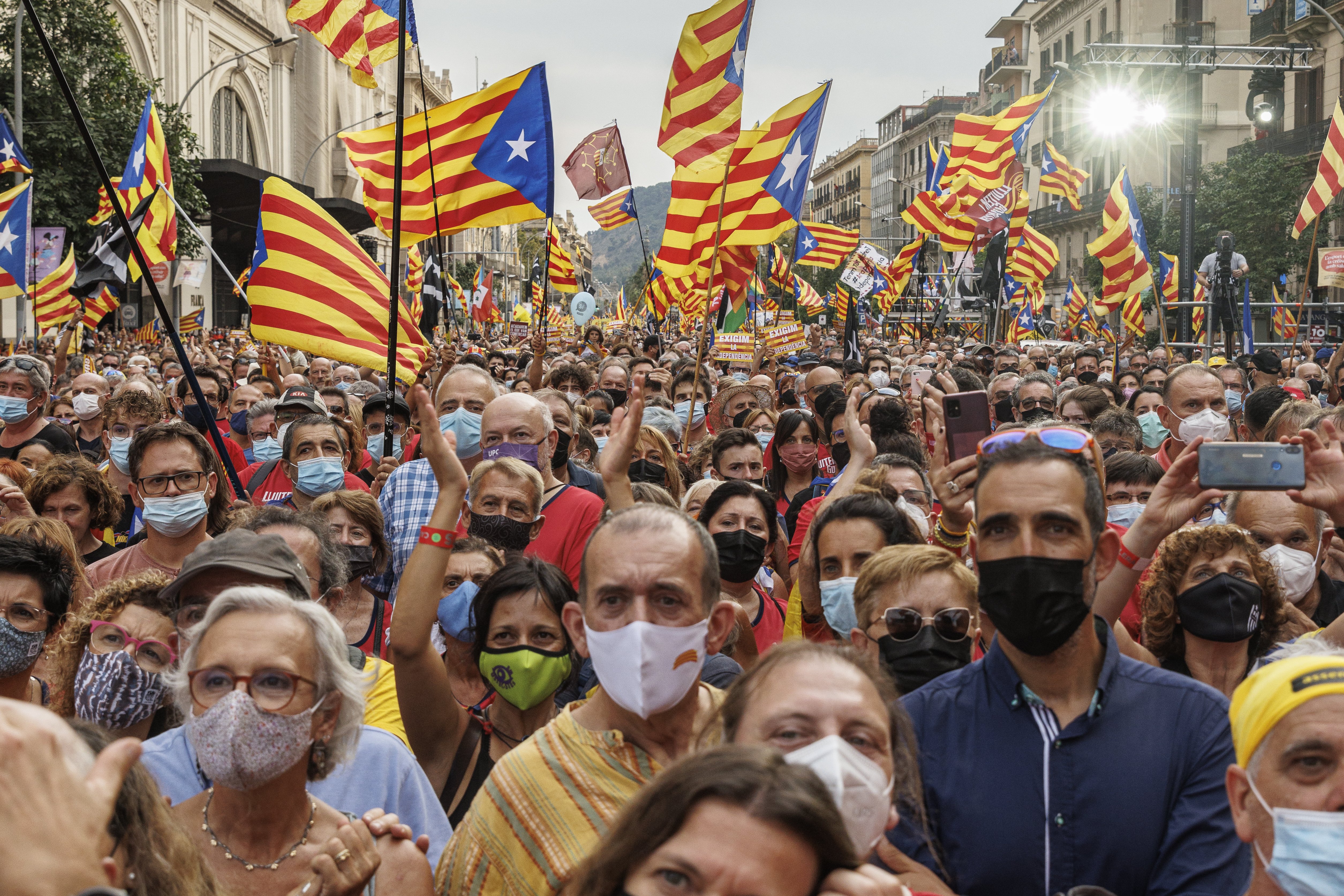How many supporters of Catalan independence would be willing, in 2022, to take part in civil disobedience actions aimed at making Catalonia into an independent state? This is the major question that the Catalonia Global Institute (CGI) has sought to answer in a new survey, and the results are revealing: more than 70% of pro-independence Catalans would would willing to participate. This Catalan-Swiss think tank considers that around half of the total population of Catalonia would support independence and of these, 71.3% would participate in a peaceful movement of civil disobedience to achieve it. Thus, concludes the CGI, more than a third of all Catalans would be willing to become part of such a non-violent movement in order to move forward in the independence process. They are, says the study, "Catalan rebels-in-waiting".
This willingness, however, varies according to the age and area of residence of the respondents. Generally, the youngest are the most in favour, with 76.9%, almost five points above the average. As age increases, the level of enthusiasm decreases: 71.7% between the ages of 30 and 44; 69.6% between 45 and 59; and 69% of independence supporters over the age of 60. By geographical area, the Catalonia Global Institute has examined the pro-independence groups based on four areas of residence: Barcelona city, the rest of the "Barcelona metropolitan area" (the inner core of surrounding municipalities, including the Baix Llobregat cities, Sant Cugat and Badalona), the rest of the Barcelona metropolitan region beyond that (counties from Garraf to the Maresme and, inland, the Vallès) and the rest of Catalonia. Precisely, it is in the outer part of the metropolitan region, without Barcelona city itself or its nearest neighbours, where there is most predisposition to enter this non-violent movement, with 77.6%. This is followed by the rest of Catalonia, at 72.5% and Barcelona city, with 69.9%. On the other hand, the metropolitan area without Barcelona city, is where the idea has least acceptance among pro-independence activists, with only 61.3% in favour - but it is still the majority option. In addition, in its analysis, the CGI concludes that women are more likely to want to take part in actions of civil disobedience for independence.
The grassroots have not given up
This study, carried out at the end of January in Catalonia, has not been carried out before and, therefore, there are not previous statistics to compare and provide trends. However, the CGI notes that "since 2017, hundreds of thousands of Catalan pro-independence supporters have taken part in massive acts of civil disobedience. From the 1st October referendum and the 3rd October national stoppage, to the cycle of protests against the sentences in the Supreme Court trial of pro-independence leaders in October 2019". Thus, the survey findings correlate with the previously observed behaviour among independence supporters and the desire of the majority to take part in civil disobedience actions.
The Catalonia Global Institute was created at the end of January 2021, with the intention of providing Catalan society and its institutions with their own vision in international politics, "becoming a reference think-tank in terms of reflection and elaboration of proposals" on the opportunities for Catalonia and its role in the international sphere, as detailed in its founding manifesto. Now, at a time when "Catalan independence is lacking a clear unified strategy and competent leadership", this first survey reveals that "the pro-independence grassroots have not given up". "Despite the repressive atmosphere, a large majority of pro-independence supporters have answered that they would be willing to take part in peaceful civil disobedience campaigns to defend their rights," the CGI concludes.

